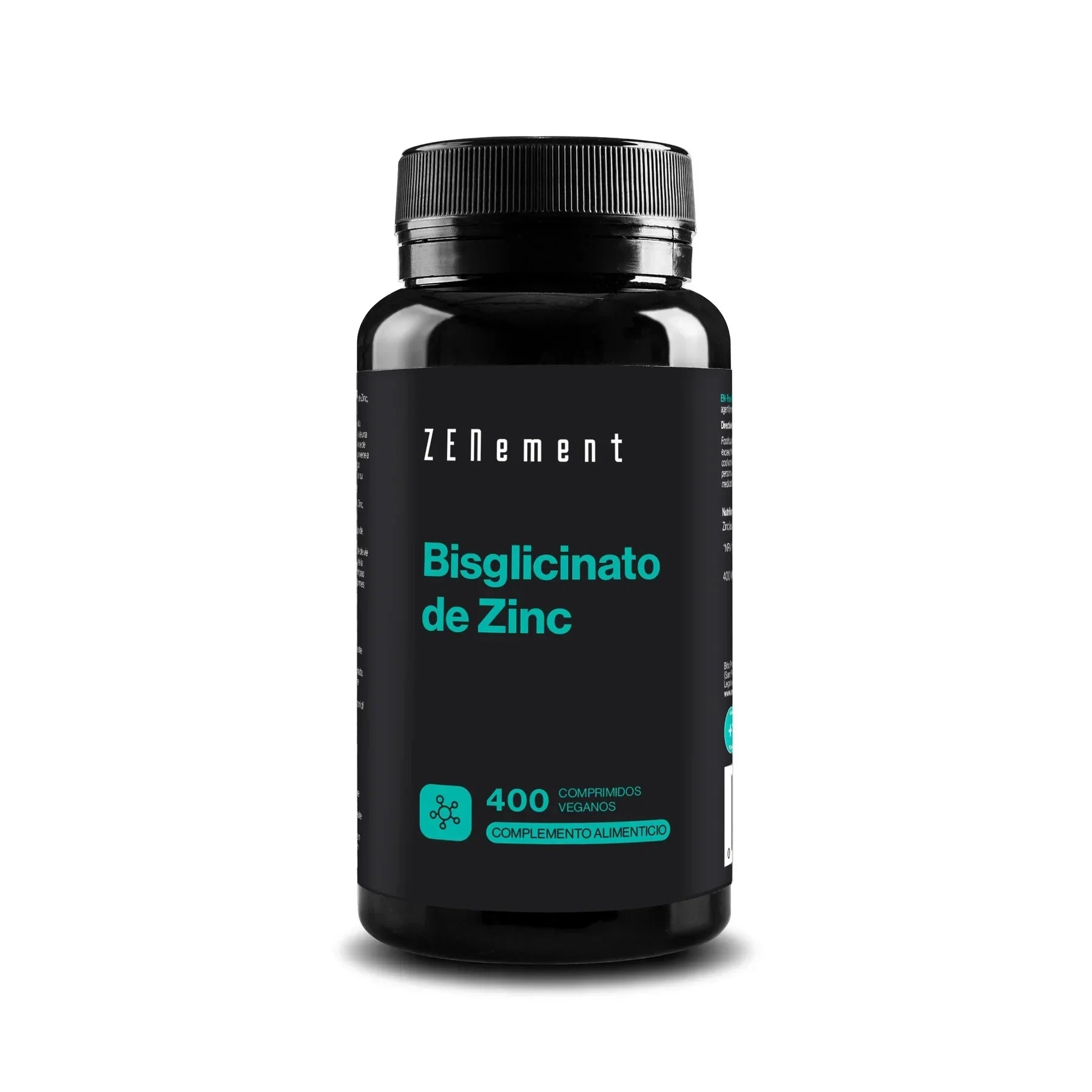What is zinc and why is it essential?
Zinc is a trace element essential to the human body. Itparticipates in more than 300 enzymatic reactions and is essential for functions such as wound healing, DNA synthesis, cellular metabolism, and immune function. The body does not produce it on its own, so it must be obtained through diet or supplementation. Zinc deficiency can result in hair loss, dry skin, brittle nails, decreased immunity, and delayed healing.
What is zinc bisglycinate and why is it recommended?
Zinc bisglycinateisa chelated form of zinc, in which the mineral is bound to two molecules of the amino acid glycine. This form improves bioavailability, meaning the body can absorb and utilize it more efficiently than other conventional forms such as zinc oxide or zinc sulfate.
Clinical studies have shown that bisglycinate is gentler on the stomach and has a higher intestinal absorption rate, making it an ideal choice for daily and long-term use.
Benefits of zinc for the body
1. Healthy skin, hair and nails
Zinc is a key ally in maintaining skin health. It participates in cell regeneration, collagen production, and wound healing. It also regulates the activity of the sebaceous glands, making it useful for cases of acne or oily skin.
-
Hair:Prevents hair loss and strengthens the hair follicle.
-
Nails:Promotes growth and prevents brittleness.
-
Skin:Improves tone, reduces imperfections and accelerates regeneration.
2. Strengthening the immune system
Zinc is crucial for the proper functioning of the immune system. It helps immune cells develop and communicate, and acts as an antioxidant by neutralizing free radicals. Several studies have shown that it can reduce the duration of coldsand improve the response to bacterial and viral infections.
3. Fertility and hormonal health
In men, zinc contributes to testosterone production and the maintenance of normal hormone levels. It also influences sperm quality. In women, it supports ovulation and endocrine balance, especially in cases of PCOS (polycystic ovary syndrome).
4. Cognitive function and mental well-being
Zinc is also involved in neuronal transmission, memory, and mood. Zinc deficiency has been linked to an increased risk of depression and mild cognitive impairment in older adults.
5. Antioxidant power and cellular protection
This mineral protects cells from oxidative damage, promoting healthy aging and protecting DNA. Its antioxidant and immunomodulatory properties make it a key supplement for the general prevention of cellular deterioration.
Why choose this formulation?
This supplement stands out for its premium and minimalist formula, ideal for those who take care of themselves:
-
15 mg of elemental zinc per tablet(bisglycinate form, high absorption).
-
365 tablets: a full year's supply with a single daily dose.
-
Vegan and free of common allergens(gluten-free, lactose-free, sugar-free).
-
Laboratory tested: certified pure, no heavy metals or contaminants.
-
Manufacturing with European standards: guaranteed quality and full traceability.
It's perfect for integrating into a hassle-free wellness routine.
This article is for informational purposes only. The information provided is not a substitute for professional medical advice, diagnosis, or treatment. Before starting any supplementation or changing your diet, consult a doctor or healthcare professional.
Side effects and precautions
Zinc bisglycinate is generally well tolerated. However, consuming more than 40 mg/day of elemental zinc for prolonged periods may cause nausea, gastrointestinal disturbances, or interfere with the absorption of other minerals such as copper.
Concomitant use with antibiotics (such as tetracyclines or quinolones) is not recommended without medical supervision, as it may reduce their effectiveness.
Important: If you are pregnant, breastfeeding, under medical treatment, or have a specific health condition, consult a professional before starting supplementation.
Sources consulted
-
EFSA – Scientific Opinion on the Tolerable Upper Intake Level of Zinc
-
NIH Office of Dietary Supplements: Zinc Fact Sheet for Health Professionals
-
WebMD – Zinc: Benefits, Side Effects, and Dosage
-
Brown, KH and Wuehler, SE (2004). Zinc and human health: scientific evidence.
-
Prasad, AS (2014). Zinc as an antioxidant and anti-inflammatory agent: Its role in human health.
-
Roohani, N. et al. (2013). Zinc and its importance for human health: A comprehensive review.

0 comments